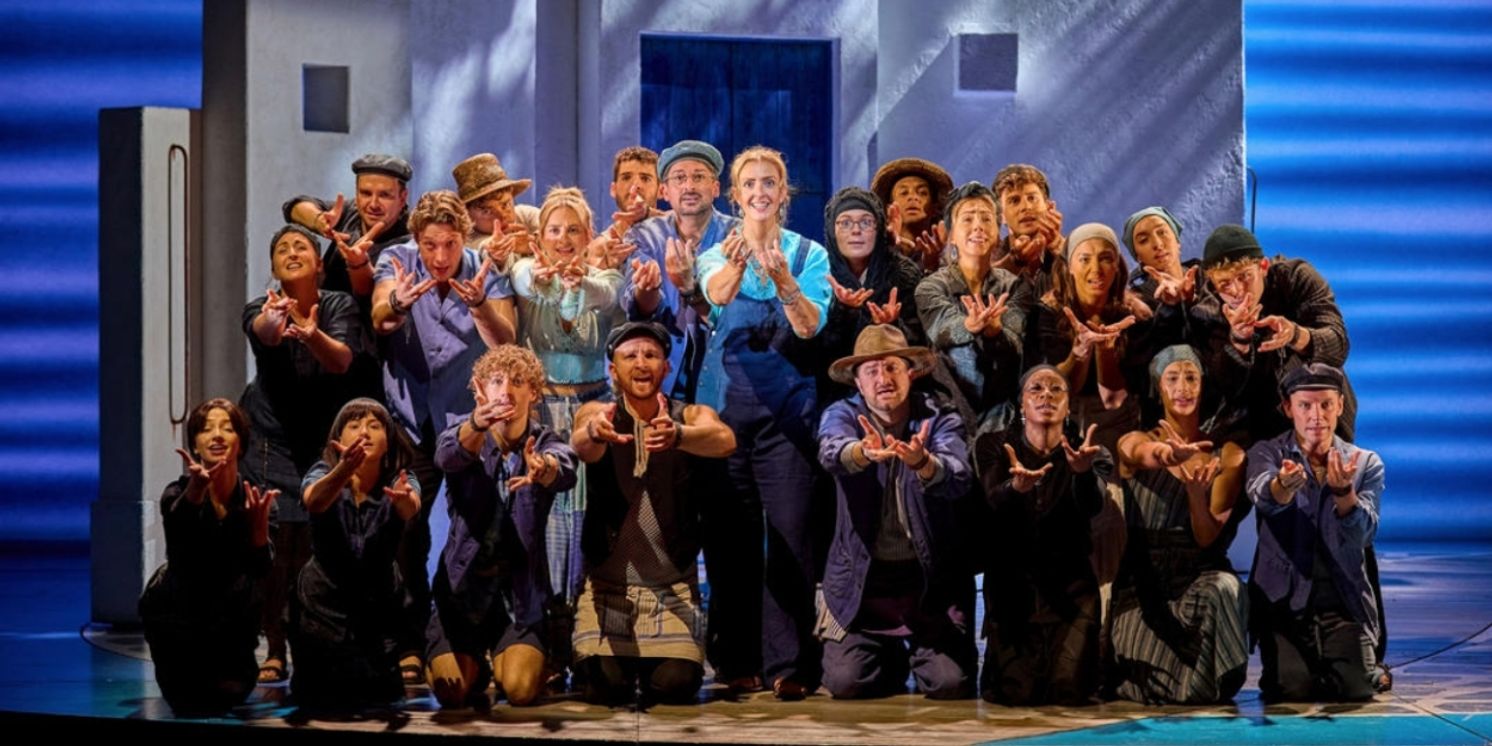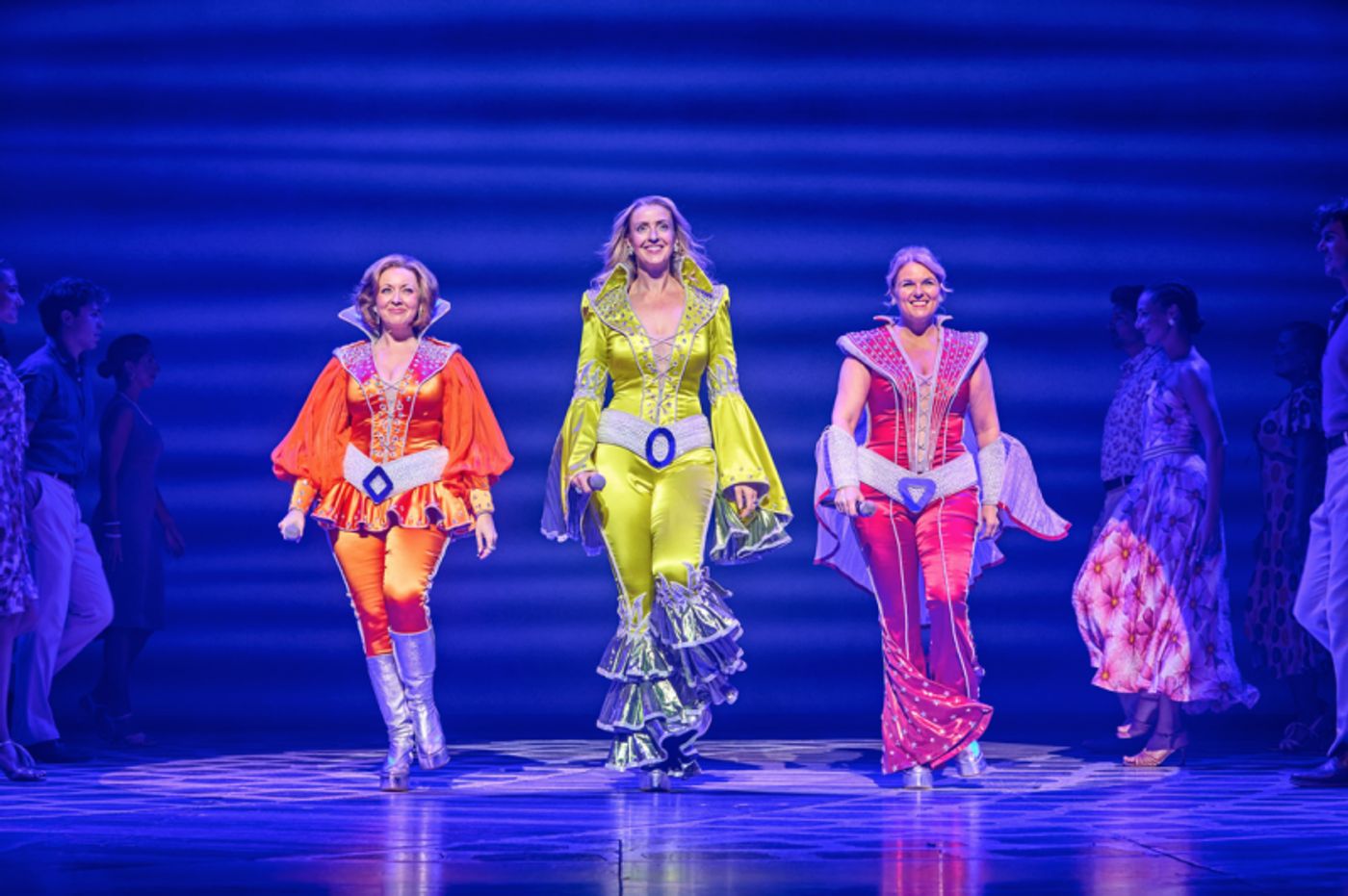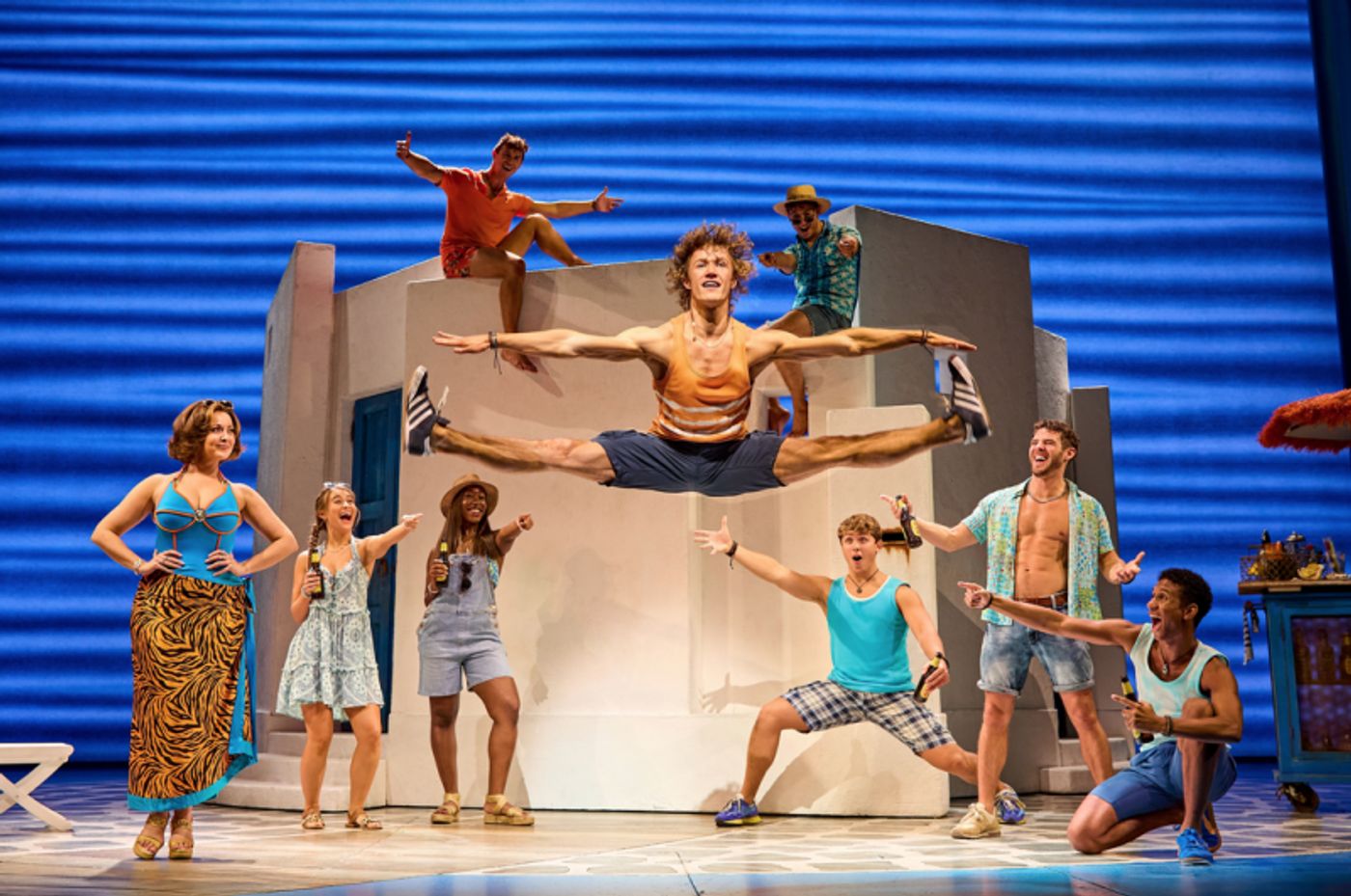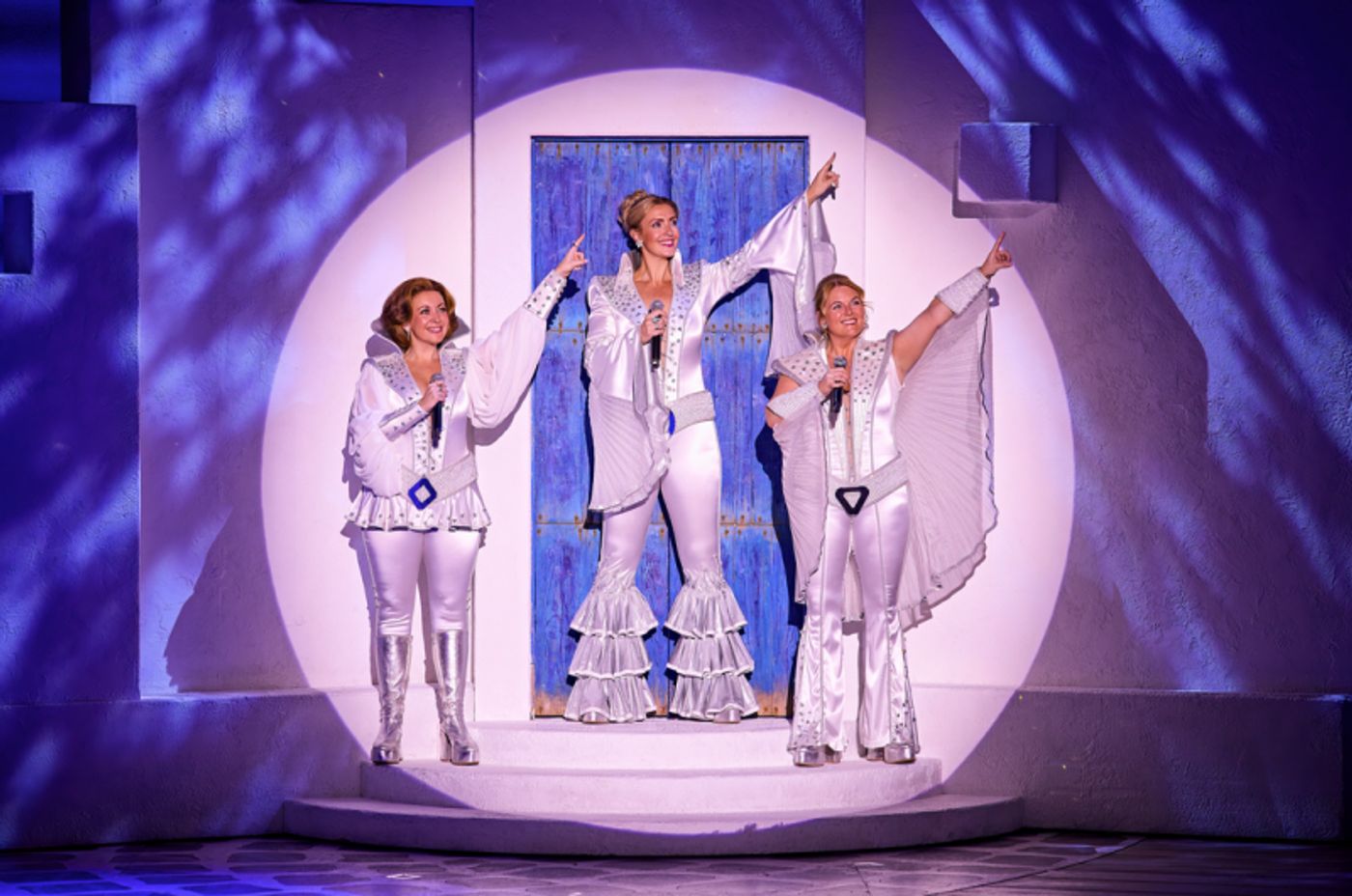Review: MAMMA MIA! INTERNATIONAL TOUR at Oslo Spektrum
Still Enjoyable, But Running a Bit on Auto pilot


Mamma Mia! is one of those musicals that audiences return to again and again because of its undeniable charm, feel-good energy, and, of course, the timeless music of ABBA. No matter how many times it has been performed, the show’s winning formula remains intact. The latest production at Oslo Spektrum is no exception—it delivers the same story, the same songs, and the same choreography that audiences around the world know and love. But while this performance was polished and professional, it lacked a crucial element: spontaneity. It felt safe, almost as though it was running on autopilot rather than being truly lived in by the cast.
That’s not to say that the production was bad—far from it. The structure of the show still works, the music is still infectious, and the energy of the audience ensured that the evening was enjoyable. However, the performance felt more like a well-rehearsed routine than a fresh, dynamic experience. There’s a difference between a show being tight and professional versus feeling over-rehearsed, and unfortunately, this leaned toward the latter.
One of the most fascinating aspects of long-running replica productions is that, despite being designed to be identical, they can still feel completely different from one another depending on the energy, commitment, and chemistry of the performers. This version looked and sounded exactly as it should, but the emotional connection was missing in key moments, particularly in Act One, where the cast seemed somewhat disconnected from the material. Act Two fared better, with more engagement and a greater sense of enjoyment, but the overall impression was that of a production that has been running for a long time and, at least in this performance, lacked the freshness that can make Mamma Mia! truly magical.
Among the cast, Ellie Kingdom as Sophie was the clear highlight of the evening. She brought a real presence to the role and felt far more connected to her character than many of her co-stars. Her voice was stunning, and she delivered an authentic and engaging performance, particularly in her scenes with George Maddison as Sky, who also did a great job. Their chemistry was believable and added warmth to their interactions, making their relationship one of the more engaging aspects of the night.
Steph Parry as Donna is a seasoned performer, and while she certainly gave a solid performance, it seemed like she was dealing with some vocal issues during this particular show. Having seen her in other productions where this wasn’t the case, I know she’s capable of much stronger vocal moments. It’s possible she was simply having an off night, which happens to any performer, but it did slightly affect the impact of some of Donna’s biggest numbers.
Supporting characters Rosie (Nicky Swift) and Tanya (Sarah Earnshaw) were enjoyable, though I’ve found myself more emotionally connected to other performers in these roles in the past. They hit all the right beats—Rosie’s comedic timing was solid, and Tanya had the expected elegance and sass—but there was still a slight sense of going through the motions rather than truly inhabiting the characters. Their big moments, including “Take a Chance on Me” and “Does Your Mother Know,” worked well, but they didn’t feel as dynamic or electric as they have in other productions.
The ensemble performed well, executing the choreography and high-energy numbers as expected. However, there was an undeniable sense that many of them had done this show for a long time, and as a result, it lacked the organic excitement that can make Mamma Mia! feel like a party. That’s not to say that they weren’t good—technically, everything was there—but the energy didn’t always feel as infectious as it should.
It’s impossible not to compare this to Scenekvelder’s production at Folketeatret, reviewed back in 2021, which felt significantly more vibrant and fresher. That version had an immediacy and energy that made it feel alive, whereas this one, despite being technically proficient, didn’t quite reach those same heights. The difference wasn’t in the staging or direction (since both follow the same blueprint), but in the way the cast connected with the material and each other. The Folketeatret production had a sense of spontaneity that was missing here, and that lack of natural, in-the-moment energy made this version feel more like a well-rehearsed routine than a living, breathing performance.
Another factor that impacted the overall experience was the venue itself. Oslo Spektrum is not the ideal space for Mamma Mia!, as it is too big to get an emotional connection. The sound design also suffered as a result. In Act One, the sound was particularly harsh, with too much reverb and a somewhat muffled orchestra. This created a disconnect between the music and the vocals, making certain moments feel less cohesive. Fortunately, this improved in Act Two, suggesting that adjustments were made during the performance, but the sound design still wasn’t optimal for a musical like this. A show that relies so heavily on music needs a crisp, well-balanced sound, and unfortunately, that wasn’t fully achieved here.
The audience were engaged, energetic, and clearly having a fantastic time. It’s important to acknowledge that, for many people in the audience, this may have been their first time seeing Mamma Mia! and if that were the case for me, I might have been more swept up in the experience. But having seen multiple versions of the show, I couldn’t help but feel that this particular performance didn’t quite reach the heights it is capable of.
That being said, Mamma Mia! is still a show that works. Even on a night when it feels more rehearsed than spontaneous, it remains an enjoyable and uplifting experience. The music, the nostalgia, and the joy it brings to audiences ensure that it continues to be a crowd-pleaser.
Mamma Mia! at Oslo Spektrum was solid but lacked the vibrancy that can make the show feel magical. It felt more like a well-executed routine than an organic, in-the-moment performance. The show remains technically sound, the music is still fantastic, and the audience energy was undeniable. However, it’s a reminder that even when a production is designed to be identical to every other version, the end result can feel completely different depending on the energy, commitment, and engagement of the performers.
With some minor adjustments—allowing for more spontaneity, a greater sense of connection from the cast, and refining the sound design—this production could feel truly amazing again. As it stands, it’s an enjoyable, well-executed show that delivers what Mamma Mia! is known for, but it doesn’t quite reach its full potential.
Photos by Brinkhoff/Mögenburg



Reader Reviews

Videos


